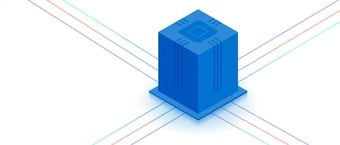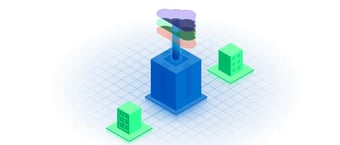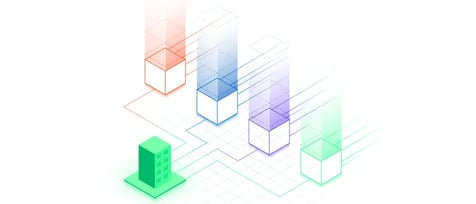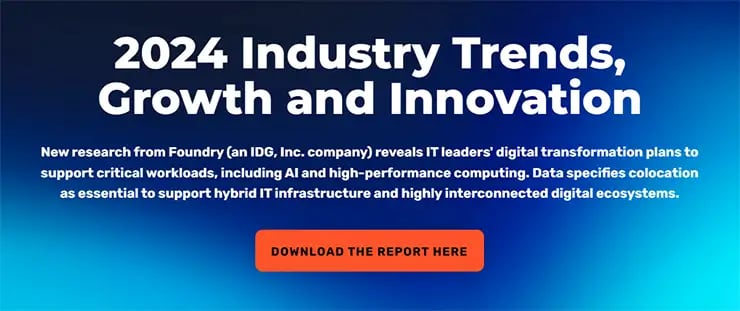
Seven Tips for Choosing the Right Data Center Company or Colocation Provider
Selecting a data center or colocation provider is a big decision for your business. After all, you'll be housing your mission-critical infrastructure within someone else's facility. There are a number of criteria you should take into account before you make a selection. This seven we have here are not intended to be the definitive list of requirements for every business, but they are a good starting point.
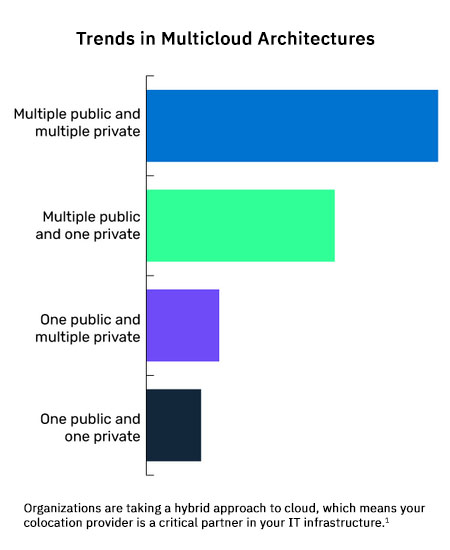
You can use these criteria as the basis for your search or your data center RFP. And, if you are not already distributing your applications across on-premises, colocation and hyperscale cloud providers, you probably will be soon. According to Flexera’s State of the Data Center 2022 survey results, “…79 percent of respondents said they’re incorporating multiple public clouds, and 60 percent report using more than one private cloud.”1
1. LOCATION
Location is one of the most important factors involved when selecting a data center, for several reasons. The first thing to take into consideration in regard to location is how easily someone from your company can get to the physical location. If you ever need to upgrade or service your equipment, this is a huge consideration. Think about how costly having equipment that doesn’t meet business process requirements for an extended period of time could be. You should also take into account how prone the area is to natural disasters like hurricanes, floods, earthquakes and tornadoes. Hopefully, the data center provider took these things into account when they built the facility, but it never hurts to take extra precautions with your critical infrastructure. The last factor to consider is something we'll get into more when we talk about network and customer ecosystems, but you want to know that there is plenty of power available and lots of fiber paths going to and from the building.
2. FLEXIBILITY AND EXPANSION CAPABILITY (SCALABILITY)
As stated in the previous section, you want your provider to be able to meet your needs now and for at least several years. That said, different data center providers offer different levels of flexibility. Some will provide out-of-the-box solutions that may or may not meet your needs, while others will offer customized solutions (flexibility) in addition to standard offerings.
Find out the availability of additional space, power and connectivity. Don't hinder your business by choosing a provider that can't scale with you over time.
3. RELIABILITY
Reliability is key when choosing a data center or colo provider. Reliability is measured as uptime in the world of data centers. A reliable provider should have five 9s uptime, meaning they are reliable at least 99.999% of the time. CoreSite offers best-in-class operational excellence and a 100% uptime SLA. Other things to look for are staff certifications, customer feedback, and on-site technical support (vs. outsourced).
4. DEPLOYMENT EFFICIENCY
How fast do you need your infrastructure up and running? How quickly do you think you'll need a new cross connect or additional rack space in the future? Most businesses want their new space set up as quickly and efficiently as possible. Deployment efficiency can be difficult to quantify as a specific stat or number, but make sure your potential vendors clearly communicate timelines to you.
5. NETWORK ECOSYSTEM
One of the biggest advantages of colocation is the ability to interconnect within a shared data center space. Whether you want to connect with partners, distributors or even competitors for peering, interconnection can bring great value to your business. Before making a selection, learn about the available connectivity options. Is the facility carrier-neutral? Do they have a large ecosystem of customers already interconnecting? Do they have a platform built to simplify multicloud interconnection and management?
6. LEMMING EFFECT
A good overall indicator for anyone looking for data center or colocation space is to get an idea of how many providers are in the area. If many providers have built facilities in the same area, odds are good that it is geographically hospitable, has good network connectivity, and reliable utility services to provide power and water.
7. FINANCIAL STABILITY
Take the financial stability of the provider into account. You don't want to spend a lot of time and money investing in a data center that closes within a few years. Ideally, your data center should be able to support you for at least five years, if not longer. You can look at press releases, financial reporting, and financial history to get an idea of how stable the company is.
You might have read about CoreSite being acquired by wireless solutions provider American Tower Corporation. In addition to positioning both organizations to help embrace emerging technologies such as 5G, the acquisition further solidifies our sound financial foundation.
How much can colocation save? We’ve developed a Colocation Savings Calculator to get help find the answer. All you need to do is enter your data center and interconnection requirements.

